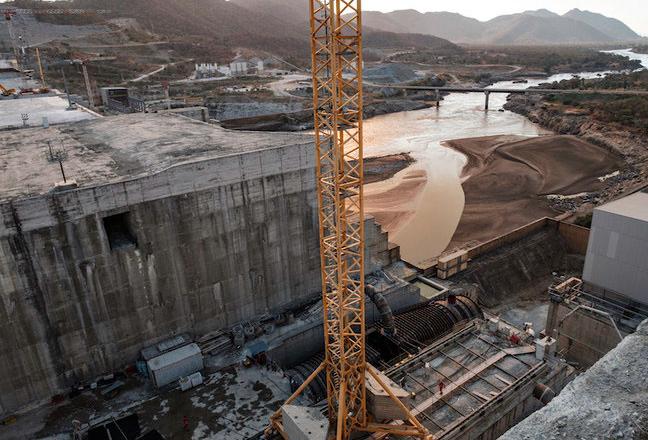You are here
Sudan to recall ambassador to Ethiopia after alleged executions
By AFP - Jun 28,2022 - Last updated at Jun 28,2022
KHARTOUM — Sudan said on Monday it will recall its ambassador to Addis Ababa for "consultations" following accusations the Ethiopian army executed seven Sudanese soldiers and a civilian, a charge which Ethiopia denied.
"In an act that contravenes all laws and customs of war and international humanitarian law, the Ethiopian army executed seven Sudanese soldiers and a citizen who were their captives," the Sudanese armed forces said.
Ethiopia denied its forces were responsible, saying the casualties were the result of a skirmish inside its territory with a local militia and voicing regret over the loss of life.
Tensions have risen in recent years, sparking sporadic armed clashes, over the Al Fashaqa border strip which is close to Ethiopia's restive Tigray region.
A Sudanese military official who requested anonymity told AFP the soldiers were detained from a border area close to Al Fashaqa.
Sudan's foreign ministry said it "will immediately recall its ambassador to Ethiopia for consultations" and lodge a complaint with the UN Security Council.
“The Ethiopian ambassador to Khartoum will also be summoned to inform him of Sudan’s condemnation of this inhumane behaviour,” the ministry said.
Ethiopia said it rejected the “misrepresentation of facts” and that the incident was “deliberately concocted” to undermine relations between the two countries.
A foreign ministry statement said it took place “within Ethiopian territory after incursions by a Sudanese regular army unit supported by elements of the terrorist TPLF”, the Tigray People’s Liberation Front.
It said the government “regrets the loss of life as a result of a skirmish between the Sudanese army and a local militia”, adding that an investigation would be carried out.
Ethiopia urged Sudan to refrain from “any escalation” and to take measures to “de-escalate the situation”.
Sudanese army chief Abdel Fattah Al Burhan visited sites in Al Fashaqa on Monday, and instructed soldiers “to not allow any new movements or encroachments on Sudanese lands and against its citizens”.
Relations between Khartoum and Addis Ababa have soured over Al Fashaqa, a fertile strip long cultivated by Ethiopian farmers but claimed by Sudan, sparking sporadic deadly clashes between the Sudanese and Ethiopian sides.
Tensions were heightened further after fighting erupted in Tigray in November 2020, sending tens of thousands of refugees fleeing into Sudan.
Khartoum and Addis Ababa have since been locked in a tense war of words, trading accusations of violence and territorial violations.
The border dispute feeds into wider tensions in the region, including over Ethiopia’s controversial Blue Nile dam.
Sudan and Egypt, both downstream countries, have been opposed to the Great Ethiopian Renaissance Dam and pushed for an agreement on the filling of its reservoir and the operation of the dam.
In February, Khartoum and Cairo slammed Addis Ababa for unilaterally deciding to start power generation at the dam.
Sudan has been roiled by economic and political turmoil since Burhan led a military coup last year that upended a transition to civilian rule installed following the 2019 ouster of president Omar Al Bashir.
Related Articles
ADDIS ABABA — Ethiopian Prime Minister Abiy Ahmed said he met Sudan's coup leader Abdel Fattah Al Burhan in Nairobi on Tuesday and that both
KHARTOUM — Sudan on Wednesday recalled its ambassador to Ethiopia, the foreign ministry said, as tensions between the two countries run high
KHARTOUM — A decades-old border dispute over fertile farmland between Sudan and Ethiopia is feeding regional rivalry and even sparking fears

Opinion
Apr 09, 2025
Apr 08, 2025
- Popular
- Rated
- Commented
Apr 08, 2025
Apr 09, 2025
Newsletter
Get top stories and blog posts emailed to you each day.















